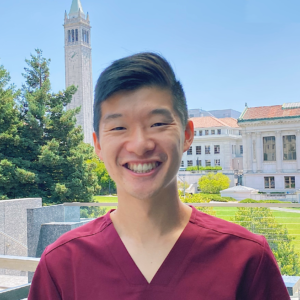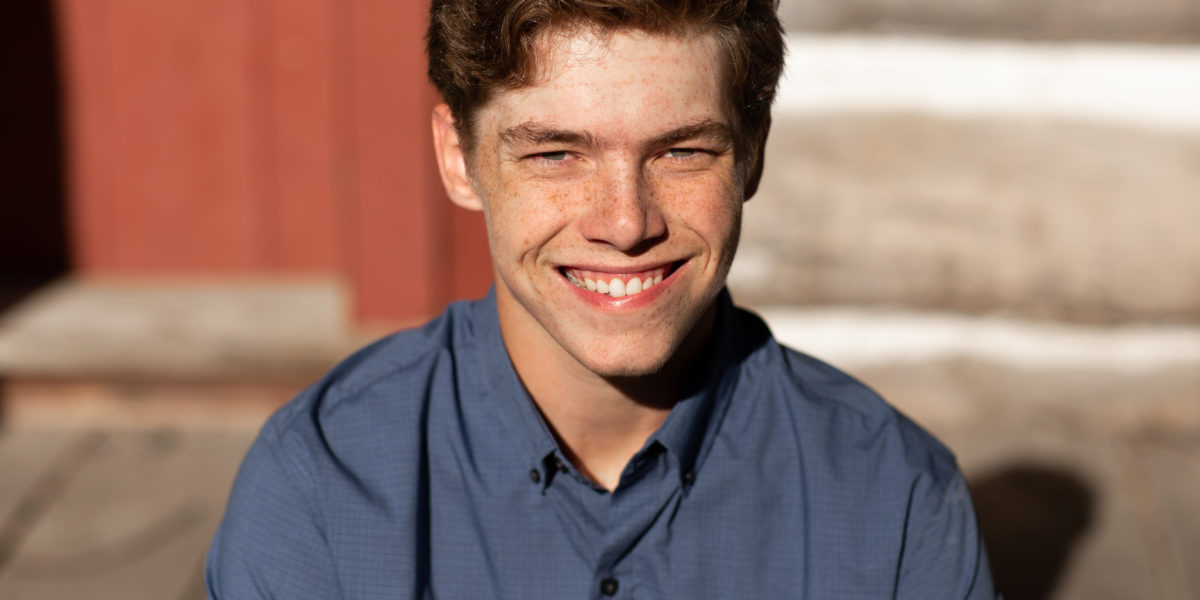Congratulations to Robert Yu and Henry Brophy, Winners of the 2021 HIE Help Center Scholarships
We are pleased to announce the winners of this year’s HIE Help Center scholarships!
Robert Yu, Winner of the HIE Help Center Physical, Occupational, and Speech Therapy Scholarship

Robert Yu (he/him) is a student physical therapist, member of the Doctor of Physical Therapy program at Samuel Merritt University. As a 5th-Degree Black Belt in Wushu, a Chinese martial art, an international dance instructor, and student physical therapist, his goal is to fuse his career aspirations with his passion for teaching dance and martial arts. He is excited to become a physical therapist to help those around him.
Watch his scholarship project below!
Henry Brophy, Winner of the HIE Help Center Special Education Scholarship

Henry Brophy (he/him) is currently a freshman at Niagara University, studying Childhood and Special Education. He hopes to work as an elementary educator in an inclusion classroom where he can inspire children to become the best versions of themselves. He has always been good with kids, and while he was in school, hanging out with kids in the the special education program had always been one of his favorite things about school. His goal is to bring out the best in students and make sure they always feel cared for and supported.
Read his scholarship essay below!
Why Special Education?
I pursued a pre-Engineering track in high school with 99s and 100s being the grades I usually received. Driving back from having completed my first college tour at an engineering school, my mother was so excited about what we had seen, the possibilities, and the program. She pulled over at one point on the three hour drive home and said, “Henry, why am I more excited than you? Aren’t you excited about the opportunities?” I answered with, “I know I’ll be able to graduate and make great money.” She then asked me, “but will you jump out of bed excited to work every day?” I had to answer no. When she asked why I answered, “I want to teach. I especially want to teach kids who have disabilities and show them that just like me they can overcome them to become whatever they choose to do.” We immediately scrapped the rest of the tours and started looking at colleges that had great special education programs.
Tourette Syndrome and Obsessive-Compulsive Disorder (OCD) have been a part of me for as long as I can remember. In preschool, I remember feeling like a string was attached to the middle of my back. I had to be careful not to get that string tangled. That meant if I walked one way around something, I felt uncomfortable until I could walk back around the other way. By third grade, if I touched something on one side (or with one hand), I needed to touch the other side (or use the other hand) to feel “balanced.” My Tourettes followed a pretty typical trajectory, with my physical tics and sounds growing in severity as I entered adolescence. At the same time, I was diagnosed with Attention Deficit Hyperactivity Disorder. When I couldn’t stop the tics or OCD in a social setting, I had two choices. Either I could retreat and avoid others, or I could find a way to overcome it. For a long time, I would use magic and humor to misdirect attention from my tics, and not even my closest friends realized anything was going on.
The combination of controlling my tics in school, in conjunction with my ADHD, had an impact on my schoolwork. I had to work much harder to achieve good grades, and in some ways, I always felt like I was not reaching my full potential. I was always short of reaching the level of high honors and missed out on scholarships because I was just below the cut-off. I did not want
any special accommodations because I have never looked at myself as someone with a disability. This is probably because I felt normal; I was treated normally by my friends and family; and my parents held me to high standards in everything I did. I learned to do the same for myself. I now realize, however, that you can face your challenges and work to overcome them while still being
honest and upfront with those around you about the challenges you have. To reach that point took time. In my Junior year, I agreed to a 504 plan. I finally could admit that the energy and focus needed to control the tics (especially during high-stakes testing situations) was taking so much attention it was hurting my grades. This was a moment of maturity for me.
Even though I struggled with controlling my tics and attention, I also had a desire to give back through service. Looking back on this chapter of my life, I notice how much helping and serving others coincided with bettering myself. From altar serving and playing my trombone at church to volunteering in my community to tutoring elementary students during this pandemic: I have always found service rewarding. An endeavor I am most proud of is serving on the Clarence Youth Court. Youth Court provides an alternative to the school discipline or criminal justice system where a peer panel helps guide students back onto a positive, healthy path. I served on cases that involved misdemeanors such as petit larceny, drug/alcohol use, and
vandalism, as well as school offenses such as e-cigarette use and fighting. Students brought before the youth court waive their right to an attorney or a trial. I served on youth court for over 100 students and I can honestly say that every person who came through the youth court benefitted from that experience and didn’t return. I benefited in many ways from working on the youth court. I learned to not see things as black and white and realized that life contains many greys. Often there is a story that explains people’s choices and actions. My intent was always to understand what brought them to that point and then provide sentencing that would help set them up for success. The goal was to prevent future activities that could get them into more trouble.
Through my activities, I have discovered a passion for teaching. I have volunteered in a first grade inclusion classroom every year since seventh grade. I have been accepted at Niagara University with a dual major in Childhood and Special Education. I hope to teach in an elementary inclusion classroom. Teachers play a huge role in shaping students into quality adults. Helping children grow into the best version of themselves makes me feel like I am having a positive impact on the world, which is all I have ever wanted to accomplish. When I become a teacher, my students will all know that regardless of what cards they have been dealt, they have the power and the potential to become whatever they wish to be. My teachers gave me that gift and I will pay it forward.
HIE Help Center Scholarships
Every year, the HIE Help Center awards two scholarships to students who are committed to helping people with hypoxic-ischemic encephalopathy (HIE), cerebral palsy (CP), and other disabilities. To learn more about our scholarships, including requirements and how to apply, visit our scholarship page.

